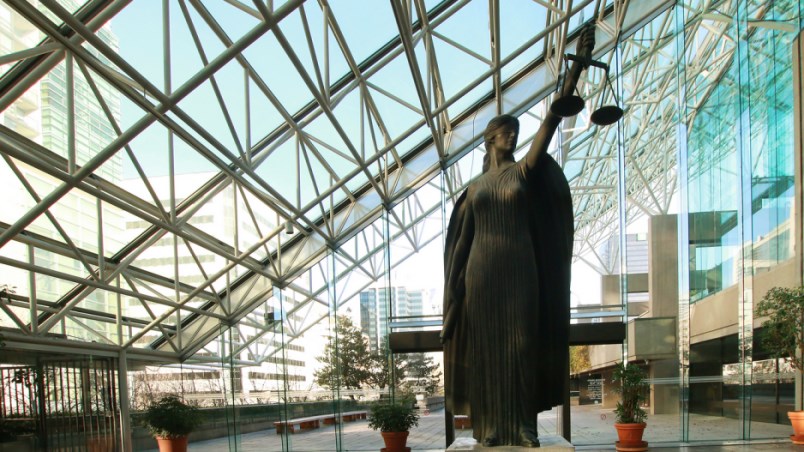The British Columbia government is planning to introduce unexplained wealth orders (UWO) in its latest move to disrupt the province’s reputation as a safe haven for dirty money.
Under the UWO regime, enforcement bodies apply for a court order to force two groups of people at high risk for money laundering - politically exposed persons and people involved in serious criminal activity - to explain their interest in certain property (usually a mansion) and how they obtained that interest.
It is a tool to be used when a criminal case is undesirable to pursue or is un-resourced.
In addition, the legacy of the E-Pirate money laundering case in British Columbia may make UWOs attractive. In that case, on two separate occasions, lawyers mistakenly disclosed the name of a confidential police informant to defense lawyers, endangering the informant. Until the gaps that caused those errors are fixed, high risk criminal cases that rely on informants, may be problematic.
Filing an UWO application requires strategic decision-making – it creates a legal fork in the road against a person and their property because it removes the constitutional right to remain silent, and therefore eliminates criminal proceedings.
It’s unclear if the federal government has weighed in on provincial UWOs, jurisdictionally, because of the impact it would have if it resulted in the unintended elimination of federal criminal investigations.
In the UK, UWOs have not been a success.
Since 2017, only 9 UWOs have been obtained in just 4 cases, and since 2019, no UWOs have been obtained at all. Only one UWO has ever resulted in asset recovery, and even that was not a true success because the defendant gave up property under a settlement.
After the last failed UWO, the UK government had to pay a legal bill of over $3 million to an alleged money launderer’s law firm. There is probably zero tolerance for such an outcome in Vancouver.
UWOs are currently on hold in the UK. The public’s appetite to spend money on financial crime has been supplanted with concerns over the spiraling cost of living, housing affordability, and energy and food security. Whether the mood in British Columbia is the same as in the UK is anyone’s guess.
The UWO concept is not all doom and gloom.
There are hundreds of capital markets cases that would be ideal and easy to obtain for UWOs if they are made applicable for securities fraud.
Let’s look at one of those cases - the case of the Amphetamine King, José Jesús Amezcua. He was a Mexican cartel leader whose group went on to merge with El Chapo’s Sinaloa cartel.
Many years ago, armed with knowledge of chemistry, he set up clandestine labs in California, and cooked crystal meth to service a growing number of addicted youth.
The cartels trafficked the King’s crystal meth up to Vancouver’s DTES; the Hells Angels then spread it eastwards across Canada.
Thus, was born the beginning of the meth epidemic, with countless young lives destroyed in its wake.
No one in Vancouver will be shocked to learn that a Canadian public company led by Vancouver capital markets guys, knowingly, according to the DEA, supplied the King’s illegal labs with pseudoephedrine, a necessary precursor drug, to cook crystal meth.
If you were one of the many Vancouver investors of that public company, your money went in the front door to run the public company, and out the back door, Iranian and Jordanian nationals in Canada were loading up truckloads of pseudoephedrine that were shipped across the border to organized crime.
US law enforcement put the Canadian public company out of business, and innocent investors who believed in the truth of the securities law disclosure, lost all their money. The undercover drug operation was such a big deal that US law enforcement agents won a national award for it.
The Amphetamine King was eventually prosecuted.
And the Vancouver executive who led the public company?
The RCMP raided his Vancouver home, he went on to run other unsuccessful British Columbia public companies and is now chilling on the title of numerous fancy mansions acquired over the last twenty years.
One of his directors fled the country and was placed on a most wanted fugitives list. The US government seized cartel money he had hidden in a Swiss bank account under a shell company.
The case in Canada then went really cold.
With UWOs, that case can come back to life and Vancouver public company executives who, directly or indirectly, did business with the Amphetamine King can be compelled to answer questions on the provenance of the money used to start any property empires they built up. Securities law disclosure can be the basis for the UWO application and the source of determining whether there is a gap between investor-reported income and securities held, versus their assets.
Vancouver has hundreds of capital markets pump and dump players who manipulate the capital markets with personal enrichment schemes – all of them engage in fraudulent securities activities and have a wealth disparity problem.
UWOs can amply fix that for them and for all of us too, in no time.
Christine Duhaime is a financial crime expert with Fusion Intelligence.



